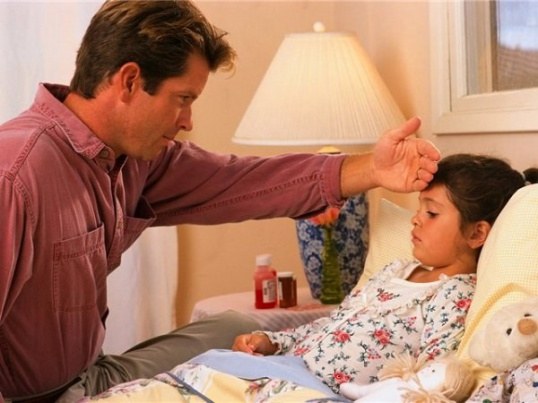Instruction
1
Mumps is transmitted by airborne droplets from an infected person to a healthy during coughing, sneezing, talking. The patient is contagious from the end of the incubation period and up to 9 days of illness. The maximum isolation of the virus goes on day 3-5 of illness. Once in the body, the virus begins to multiply in all the glandular tissues of the body - sexual, salivary glands, and pancreas and thyroid gland. In the first place and most strongly affects the salivary glands.
2
The disease usually begins acutely with fever, pain in the ear, which increases with swallowing, chewing and swallowed acidic foods. The patient has excessive saliva, and then swelling in front of the ear, which rapidly increases and becomes the maximum by 5-6 days of illness, when feeling this place is sharply painful. Earlobe bulged up, the person thus acquires a specific appearance, hence the name of the disease. Fever may persist for several days.
3
Itself the disease is usually fairly easy, but it is terrible its complications. As it affects the glandular tissue, the process involves the pancreas, and can cause an attack of acute pancreatitis. It is manifested by the appearance of girdling abdominal pain, nausea, vomiting and stool disorders. If there were these signs, you should immediately consult a doctor.
4
Also can affect the sex glands. In boys there is pain of the testicle, it becomes edematous. In the future it can develop into atrophy of the testicle and infertility. In girls, inflammation of the ovaries may cause menstrual irregularities and infertility.
5
Treatment of mumps should only be doctor. Assigned dry heat on inflamed gland, rinsing the mouth with disinfectants. Definitely need to follow a diet to exclude the food causing salivation, food should be liquid or crushed. To prevent pancreatitis are recommended to reduce the amount of white bread, cabbage, pasta and fats. It is better that the food was dairy and vegetable.
6
Prevention mumps vaccination is used. Vaccinations are done at 12 months and 6 years. If a child is ill, it is isolated up to 9 days of illness, and all of the contact are not allowed in the team for 21 days. The problem is that in 40% of cases of mumps are asymptomatic, therefore, to avoid infection, even with prompt isolation of the patient is not always possible.
